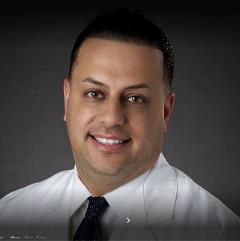Find an Oncologist
What to Know About Cervical Cancer
Cervical cancer used to be the leading cause of cancer death among women in the United States according to the Centers for Disease Control and Prevention. However, the number of cases and deaths have decreased significantly in the past 40 years. Today, it is the fourth most common cancer in women. This decline can be attributed to more and more women getting regular Pap tests, which can find cervical precancers. If detected early and managed effectively, cervical cancer is one of the most successfully treatable forms of cancer.
What Is Cervical Cancer?
The cervix connects the uterus (womb) to the vagina (birth canal). It is the place where the baby grows during pregnancy. Cervical cancer occurs when cells in this region change or slowly grow out of control. Although all women are at risk for cervical cancer, this disease most often affects women over age 30.
Exposure to certain types of the human papillomavirus (HPV) is the main cause of cervical cancer. HPV is a common virus that spreads from person to person through sexual contact. At least half of sexually active people will have HPV at some point in their lives and are able to fight the infection or simply resolve on its own and cause no symptoms, but persistent infection can cause cervical cancer in women.
Not all types of HPV cause cervical cancer. Some types cause genital or skin warts and other skin disorders.
What Are the Risk Factors for Cervical Cancer?
Anything that increases your chance of getting a disease is called a risk factor, but it does not necessarily mean you will get cancer in the same way that not having risk factors does not mean that you will not get cancer.
Other risk factors for cervical cancer include the following:
- Having HIV (the virus that causes AIDS)
- Having weakened immune system due to long-term immunosuppression from taking medicine to help prevent organ rejection after a transplant
- Being sexually active at a very young age
- Having multiple sexual partners
- Smoking
- Using birth control pills for a long time (five or more years)
- Having given birth to three or more children
- Being exposed to the drug diethylstilbestrol (DES) while in the mother’s womb
What Are the Symptoms of Cervical Cancer?
Since cervical cancer develops slowly over time, there are usually no signs and symptoms early on but it may cause vaginal bleeding and pelvic pain later on, including:
- Vaginal bleeding after sexual intercourse, between periods or after menopause
- Unusual vaginal discharge
- Pain during sexual intercourse
What are the Stages of Cervical Cancer?
A four-stage system is used to assess how far the cancer has spread and whether it has reached other nearby organs.
- Stage 1: Cancer cells have formed and is found in the cervix only.
- Stage 2: The cancer has now moved to the upper two-thirds of the vagina or to the tissue around the uterus, but not as far as the walls of the pelvis or the lower part of the vagina. It may or may not affect nearby lymph nodes.
- Stage 3: Cancer cells are present in the lower part of the vagina or the walls of the pelvis and/or has caused kidney problems and/or involves lymph nodes.
- Stage 4: The cancer has spread beyond the pelvis and has spread to the lining of the bladder or rectum. It has spread to other parts of the body, including the liver, bones, lungs and lymph nodes.
Treatments include surgery, chemotherapy and radiation therapy depending on the kind of cervical cancer and how far it has spread.
What Can I Do to Reduce My Risk?
Women as early as the age of 21 can get screened regularly to lower the risk for cervical cancer. There are two screening options to help prevent or detect cervical cancer early.
- Pap test (or Pap smear) – this procedure involves gently scraping cells from the surface of the cervix and vagina using a cotton, a brush or a small wooden stick to look for precancers that may develop into cervical cancer if they are not treated appropriately.
- HPV test – this laboratory test is used to check the DNA or RNA for certain types of HPV infection that can cause cell changes. The test may be done using the sample of cells removed during a Pap test.
What is the HPV Vaccine?
The HPV vaccine protects against the types of HPV that commonly cause cervical cancers and prevents new HPV infections. However, it does not treat existing infections or diseases. The HPV vaccine works best when given before exposure to HPV.
The vaccine is recommended for preteens aged 11 to 12 years but can be given starting at age 9. It is not recommended for everyone older than age 26 years because HPV vaccination in this age range provides less benefit, as more people have already been exposed to HPV. Those who have received an HPV vaccine should still get screened for cervical cancer regularly.
It is important to get the recommendation of your treating physician to properly assess your eligibility for an HPV vaccine. If you experience any of the symptoms mentioned earlier, seek medical attention immediately.
Sources:
World Health Organization
Centers for Disease Control and Prevention
National Cancer Institute
MedlinePlus


